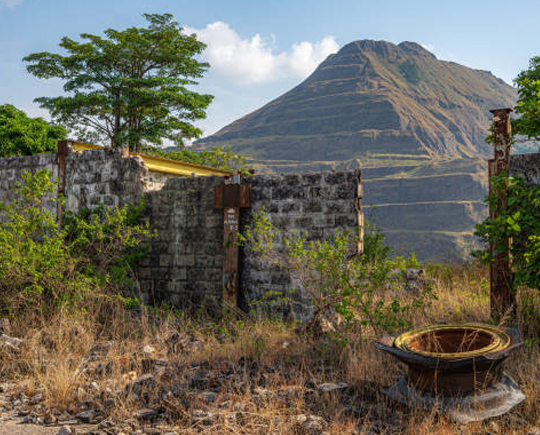Liberia (LR)

- Tourist visas for Liberia are typically valid for up to 90 days.
- Visas can be obtained upon arrival or through an e-visa application.
- Cost of a tourist visa is around $100 USD.
- Passport must be valid for at least 6 months from the date of entry.
- Yellow fever vaccination is required for entry.
1. Obtain a valid passport with at least six months of validity remaining.
2. Visit the official website of the Liberian Ministry of Foreign Affairs to download the tourist visa application form.
3. Fill out the application form completely and accurately, providing all required information such as personal details, travel plans, and contact information.
4. Gather the necessary supporting documents, including a copy of your passport, recent passport-sized photographs, proof of sufficient funds for the trip, and a copy of your travel itinerary.
5. Submit the completed application form and supporting documents to the nearest Liberian embassy or consulate in your country.
6. Pay the required visa application fee, which may vary depending on your nationality and the duration of your stay.
7. Wait for the processing of your visa application, which typically takes a few days to a few weeks.
8. Once your visa is approved, you will receive a visa sticker in your passport, allowing you to enter Liberia for tourism purposes.
9. Make sure to abide
1. Liberia Tourist Visa Application Portal: https://www.liberiavisas.com
2. Liberia eVisa Application: https://www.liberiavisaonline.com
3. Liberia Visa Application Online: https://www.liberiaimmigration.gov.lr/visa-application
- Valid passport
- Passport-sized photos
- Completed visa application form
- Proof of accommodation (hotel reservation)
- Travel itinerary (flight reservations)
- Proof of sufficient funds for the trip
- Letter of invitation (if applicable)
- Travel insurance
- Yellow fever vaccination certificate
- Bank statements
- Employment letter
- Copy of return ticket
- Visa application fee
Please note that additional documents may be required depending on the specific visa type and individual circumstances. It is recommended to check with the embassy or consulate for the most up-to-date and accurate information.
To extend your visa in Liberia, follow these steps:
1. Visit the Liberia Immigration Service (LIS) office at least two weeks before your current visa expires.
2. Fill out the visa extension application form and provide any required documents, such as a valid passport, proof of funds, and a letter explaining the reason for the extension.
3. Pay the visa extension fee, which varies depending on the length of the extension.
4. Wait for the LIS to process your application, which can take up to two weeks.
5. Once approved, you will receive a new visa sticker in your passport with the extended expiration date.
It's important to apply for an extension before your current visa expires to avoid any penalties or issues with immigration authorities. If you have any questions or need assistance with the extension process, don't hesitate to ask the LIS staff for help.
Travelers to Liberia are required to have a valid passport with at least six months validity remaining. Visas are required for most nationalities and can be obtained upon arrival or in advance from the nearest Liberian embassy or consulate. Yellow fever vaccination is mandatory for all travelers entering Liberia, and a certificate proving vaccination must be presented upon arrival. Additionally, travelers are advised to be up to date on routine vaccinations such as measles, mumps, and rubella (MMR), diphtheria, tetanus, and pertussis (DTaP), and influenza.
It is recommended to consult with a healthcare provider or travel medicine specialist at least four to six weeks before traveling to Liberia to discuss any additional vaccines or medications that may be necessary based on individual health conditions and travel plans. Malaria is prevalent in Liberia, so taking antimalarial medication and using insect repellent are strongly advised. Travelers should also take precautions to prevent mosquito bites by wearing long sleeves and pants and using bed nets while
In Liberia, it is important for travelers to be aware of local laws and customs to ensure a safe and enjoyable trip. It is important to respect the local culture and traditions, including dressing modestly and being mindful of public displays of affection. It is also important to be aware that homosexuality is illegal in Liberia and can result in severe penalties.
Travelers should also be aware of the local laws regarding drugs and alcohol. Possession and use of illegal drugs are strictly prohibited and can result in harsh penalties. It is also important to note that drinking in public places is not allowed in Liberia.
When visiting religious sites or participating in religious ceremonies, it is important to dress modestly and show respect for the customs and traditions of the local community.
Overall, it is important for travelers to research and understand the local laws and customs of Liberia before visiting to ensure a smooth and enjoyable trip.
Liberia is a country located in West Africa, known for being the first African nation to gain independence in 1847. The official language is English, and the capital city is Monrovia. The country is rich in natural resources, including iron ore, timber, and rubber.
Liberia has a diverse culture influenced by indigenous tribes, as well as American settlers who founded the country as a colony for freed African-American slaves. The country has faced challenges such as civil war and Ebola outbreaks, but has made progress in recent years towards stability and economic development.
Liberia is also known for its beautiful beaches and lush rainforests, making it a popular destination for eco-tourism. The country is home to diverse wildlife, including elephants, chimpanzees, and various bird species.